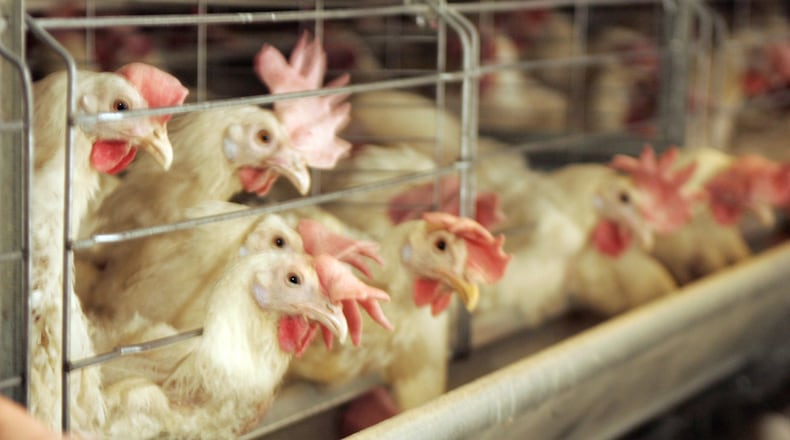According to the Ohio Department of Health, the patient is a man who works at a farm in Mercer County and was in contact with dead commercial poultry that was infected with the virus.
ODH said that in general it thinks the risk to the general public of contracting the disease is low, but said that people who have close or prolonged contact with infected birds are at a higher risk.
The agency advised residents to avoid direct contact with wild birds or sick or dead poultry, and to contact the local health department or veterinarian for further guidance.
For people who work with poultry, the ODH said to practice good biosecurity, with practices like preventing contact between your birds and wild birds and waterfowl, keeping visitors to a minimum, washing hands before and after handling poultry, cleaning and disinfecting tools and equipment before moving to a different facility and watching for signs of illness.
The department added that it is safe to eat properly cooked poultry and pasteurized dairy products, where the food is cooked to a safe internal temperature to kill bacteria and viruses.
Anyone who has been exposed to a sick or dead bird should monitor themselves for any new respiratory symptoms and contact their healthcare provider or local health department if any develop. Ohioans can report sick or dead wild birds to the Ohio Department of Natural Resources by calling 1-800-WILDLIFE and sick or dead poultry to the Ohio Department of Agriculture at 614-728-6220.
Nationwide, ODH said that there have been 68 confirmed cases of his strain of bird flu in 11 states since the start of 2024, leading to one death in Louisiana. All but three of the cases came from exposure to commercial agriculture or wild birds.
ODH Director Bruce Vanderhoff said, “While the risk to Ohioans is low, the best way to prevent bird flu is to avoid unprotected exposures to sick or dead birds or to their environment. People should avoid direct contact with poultry or wild birds and take proper precautions, including reaching out for guidance regarding personal protection and safe handling, if you must be around sick or dead birds.”
About the Author

